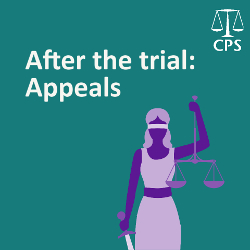After the trial - appeals - Rape and Serious Sexual Assault

You have the right under the Victims’ Code to be given information about any appeals in the case. Your police contact will let you know if there are any appeals.
If the defendant has been found not guilty, we can’t appeal the verdict. This is because the law does not give us the right to appeal against the decision of the jury.
In very rare circumstances, it may be possible for us to ask the court to quash the acquittal and ask for a retrial if the police find ‘new and compelling’ evidence which was not available at the time of the original trial. However, these cases are extremely rare as the standard of evidence needed to order a retrial is very high.